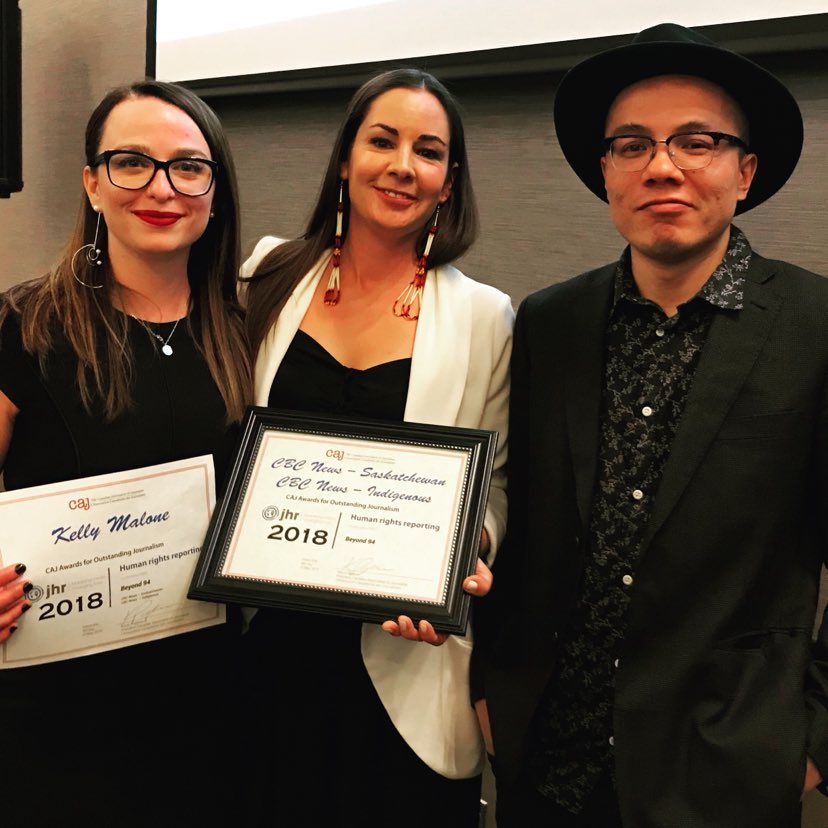Growth and mistakes: Reflecting on year one as a freelance writer
This article on reflecting on a year as a freelance writer is written by Becky Zimmer who is based in Humboldt, Saskatchewan. She has experience in farm, community, small business and sports reporting.

The decision was simple.
I was coming out of an editorial contract with nothing else on the horizon that wouldn’t have included a move that my husband and I weren’t ready for.
My network has grown in the eight years I’ve been living and working in rural Saskatchewan, so it became the perfect time to freelance writing a shot. That was a year ago and now I’m looking back on my first full year running my own business.
This has been the best move of my career. However, this doesn’t mean I still don’t drool over the job postings that pop up on my LinkedIn feed. Or that I’m not worried about the eventually slow times that will creep up.
What I’ve learned in my first year as a freelance writer
I still have questions, like what I could have done better or what changes I am going to make as I start year two, but here are a few things I’ve learned along the way.
Set your schedule
Our to-do lists will never be empty. That is just a fact of making work for yourself. There will always be stories to research, phone calls to make, interviews to do and travel plans to make.
With that being the case, set up a work schedule but also remember your brain needs time to rest. Take the coffee and lunch breaks, have a quitting time, take days off. The endless slog will not cease when you’re on the verge of burnout.
Set some goals
When I first started out, any story, contact, or new job was like striking gold. I was just happy to be covering the stories that interested me, but I didn’t know what to expect when it came to calculating any word count or net income goals. Some media outlets pay more than others but in my experience, community news pays far less than agricultural writing and corporate work pays more than agriculture. I wasn’t going into this looking at the dollar and cents of it all. I just wanted to work as a storyteller and communicator.
I count this year as a success.
At over 160 stories written, that’s 14 a month with most of them around the 800-word mark and $38K worth of work filed, I’ve been happy with my output.
Financially, I surpassed what I made as a rural editor and reporter, I have no bill collectors knocking down my door and my husband (who has some money anxiety) was cool as a cucumber all year.
Whether you’re looking at your output, dollar amounts or even the number of pitches and queries you make in a week or a month, set a goal for how you define success.
Keep everything in order
It doesn’t matter what you use: Wave, QuickBooks, your own Excel sheet, a professional bookkeeper. If it works for you, use it to keep all your invoices in order. The only rule of this is stay on top of your finances.
While some people have said an Excel sheet isn’t enough, I have enough people in my network, including a small business support organization, telling me that I’m on the right track. Everything is in order and I usually take a good look at it a few times a week and update my invoicing while work comes in and work goes out.
Maybe an app would be easier but for now, trying something new would take some initial time and energy before making the switch worth it.
Ask for help, never stop learning and own your mistakes
I put these all together because it falls within the same sphere: fearlessly learning the business.
I became a bookkeeper and marketer overnight when I chose to go down the route of freelance writing. I’ve been saying for years that I’m a writer not a mathematician, but now I’m wrapping my head around taxes and invoicing.
In general, humans hate being vulnerable, so accepting the fact that I didn’t know everything but also not wanting to give the wrong impression to clients and newsrooms, I had to get over this.
I’ve made mistakes with my invoicing and missed some claims for GST that would have saved me some money. But so far owning up to it has saved me stress and has not lost me any clients. We all make them but mistakes are only failures when you don’t turn them into learning experiences. Take it from Alanis Morissette: you live, you learn.
Join guilds
While I don’t mean this to be a shameless plug, this is the one piece of advice I give to writers whether they ask for it or not. Part of building my network has been finding like-minded people who are just as passionate as I am about journalism and writing. I’ve found those people in farm writers, fiction writers, and fellow freelancers through guild memberships (such as Canadian Freelance Guild) and social media.
Part of asking for help is knowing who to ask and there is no greater resource than these guilds full of experienced people who’ve been there before.
Beyond that, they have also provided a wealth of travel and learning opportunities. If you’re paying the membership, these are what your dollars go towards. Dive in with both feet and maybe even see how you could get even more involved on boards and event planning. The thing that makes these guilds great are the people in them.
Other posts by Becky Zimmer
- Navigating NaNoWriMo with ADHD
- How rural community newspapers defy industry challenges and deliver vital stories
- The future of AI
Why Freelancers in Marketing and Communications Should Have an Email List
by Robyn Roste
 If you spend any time studying online marketing you’ve come across advice to start an email list. And if you’re a typical freelancer who gets most of your work from referrals you may think you don’t need one.
If you spend any time studying online marketing you’ve come across advice to start an email list. And if you’re a typical freelancer who gets most of your work from referrals you may think you don’t need one.
I get it. On the surface it doesn’t make sense. Why would you collect random subscribers when your work comes through different channels? And why would you spend time sending emails when you don’t need many clients to run your business?
Email lists can be good for your freelance business. If you can create an environment where your email subscribers enjoy hearing from you and find your content relevant and applicable, you position yourself to be the first person they think of when they’re looking for a freelancer.
Here are six reasons why having an email list makes sense for freelancers.
1. An email list nurtures potential clients who aren’t ready to hire you…yet
Webinar: The CFG Social Media Experts Panel Returns
One of the highlights of the Canadian Freelance Guild’s 2023 Summer Academy was the first gathering of the Social Media Experts Panel. Six months on, it’s time for an update on navigating the messy world of social media.

This time, the panel will methodically work their way through the top social media platforms to talk about the good, the bad and the horrible.
Our Presenters
Vanessa and Mina are confirmed, and we’re hoping Caroline will also be able to join.
This webinar is part of the Canadian Freelance Guild’s Business of Freelancing series.
The CFG Social Media Experts Panel Returns
- Online: Wednesday, January 24, 2024
- 8 p.m. to 9 p.m. Eastern Time
- $5 for members
- $20 for non-members
You can register for this webinar right here.
Learn more about the cost and benefits of membership in the CFG on this webpage.
The link to the Zoom webinar will be sent to you via email about half an hour before the start time.
Please check your spam or junk folders if you can’t find the email, and contact organizer@canadianfreelanceguild.ca if you haven’t received the link 10 minutes before the scheduled start time. This webinar will be recorded and posted to the CFG Video-On-Demand site. Once posted, all paid registrants will receive a link and instructions on how to view.
The future of AI
This article on the future of AI is written by Becky Zimmer, a freelance writer based in Humboldt, Saskatchewan with experience in farm, community, small business and sports reporting.

Kenzi is four years old. Asking her to write and tell me a story, blue pen scribbles on notebook paper her own form of “writing”, was a great way to distract her while I hung out on my aunt’s couch on a working holiday, the long wait before Kenzi’s mom came to pick her up a failed attempt at my own writing.
The small glimpse into the mind of a preschooler was a lesson in itself. My cousin talked about the adventures of her grandpa and a snowman, her mind jumping from one plot line to the next. First, the snowman was melting as he travelled down a river to the ocean, her small mind flabbergasted on where to take the story from there. Then, her great grandpa, also present in the room, came into the picture, he and the snowman performing magic tricks and singing a song that sure included her own name a lot.
While the players and settings were closely front-of-mind in the form of her family and her hometown in British Columbia, individual words came from somewhere else. The dozens of stories she already heard in her short life a goulash of ideas in her head, forming something completely new.
By the time she is in university, how will these tales be transformed into something different? What new characters and location will play a role in her storytelling?
In 10 or 15 years, will she still be forming her own stories? Maybe she will be learning how to take them from her head to the page or screen?
Throughout this series on artificial intelligence, we’ve talked about how AI has had an impact on writers and educators and what AI development means for journalists, but the biggest question I’ve wanted to ask is what the future of AI development is going to look like.
How far will AI development go and is it a good thing?
This discussion was brought even more into the spotlight recently with breaking news about Geoffrey Hinton quitting his job with Google after 10 years. According to a New York Times article, the artificial intelligence pioneer created technology at the University of Toronto in 2012 that became the intellectual foundation for AI. Now, he is speaking out against his creation.
Just like what we said in previous articles, Hinton expects AI to take the grudge work out of rote tasks but they may take away more than that.
“It is hard to see how you can prevent the bad actors from using it for bad things.”
While Alec Couros, director for the Center for Teaching and Learning at the University of Regina, mentioned the utopian dream of AI taking away those monotonous jobs to let humans focus on the critical thinking, collaboration, comprehension, and creativity elements, he also mentioned the concerns of the current path we are going down. There is no final destination because so far, there is no perceived end to the places AI could take the human race.
However, there are already issues in security, technological over-dependence and drops in literacy rates that are telling signs of trouble for the future, especially when coupled with the COVID-19 pandemic, said Couros. While he is not talking about all of these problems coming to a head in the next few years, systemic changes may alleviate some of these concerns; Couros cites universal basic income as a solution because people could be free to pursue more creative endeavours after they’re jobs become AI-based.
AI is going to change the world, so how do we solve the ensuing global problems?
“We have to retool our ideas. We have to think differently about how we see work and labor and how we interact with technology.”
You cannot watch this AI-powered shift and not see the potential changes to copyrights, production, and creation, said Owen Brierley. There are always going to be two camps of people; those that want to maintain the creative process without AI and those that want to embrace AI and both will bring different value adds to the table.
The biggest shocks to the system will take place in the short term, said Brierly, but over the long term, we are going to be dealing with a “deepening of accuracy, the broadening of application.”
“This ability for a human to human to AI collaboration where I can become a much more effective collaborative with you, as a colleague, friend, whatever, and AI helps augment that by contributing in ways that I can understand the noise that you can’t understand so we end up generating something that we’ve never been able to generate just on our own, the two of us.”
With AI coming into the more creative aspects of society, with many recent examples of AI based art and music, we have reached an existential step, said Darren Hick, assistant professor of philosophy at Furman University in Greenville, South Carolina. Technological development concerns are nothing new; Hicks remembers when the internet was just personal websites and six degrees of Kevin Bacon, but it figured out how to be useful. AI is not going anywhere, he said, and we have to be cognizant of where we’re going with it.
“It’s technology, there’s nothing wrong with that. There’s nothing wrong with computers, there’s nothing wrong with cell phones, as long as we don’t lose sight of why we were doing this in the first place.”
Webinar: Find and Win Government Contracts
Join the Canadian Freelance Guild for the first CFG Experts Panel of 2024 and discover how you can navigate the government contracting system to your advantage.
After all, it’s the biggest purchaser of private sector goods and services in the country.
We’ve confirmed two expert CFG panelists who know how to find and get Government of Canada contracts, and a representative from Procurement Canada.
This is bound to be a popular event just two months from the government’s annual year end, when budgets are either spent or returned to the Treasury.
Find out how the system works, how to make it work for you, and whether this is the kind of client you really want.
This webinar is part of the Canadian Freelance Guild’s Business of Freelancing series.
Our Presenters
Marion Soublière is president of M.E.S. Editing and Writing Services (www.meseditingandwriting.com), and a veteran of the communications, journalism and public relations fields.
donalee Moulton is a professional writer based in Halifax, Nova Scotia. But she is also so much more! Animal lover. Business owner. Boss lady.
Dolan Bogus is a procurement lead for Procurement Assistance Canada, and has been working in government procurement for nearly 20 years.
Find and Win Government Contracts
- Online: Wednesday, January 10, 2024
- 6 p.m. to 7 p.m. Eastern Time
- $5 for members
- $20 for non-members
You can register for this webinar right here.
Learn more about the cost and benefits of membership in the CFG on this webpage.
The link to the Zoom webinar will be sent to you via email about half an hour before the start time.
Please check your spam or junk folders if you can’t find the email, and contact organizer@canadianfreelanceguild.ca if you haven’t received the link 10 minutes before the scheduled start time. This webinar will be recorded and posted to the CFG Video-On-Demand site. Once posted, all paid registrants will receive a link and instructions on how to view.
Navigating NaNoWriMo with ADHD: One Freelance Writer’s Experience
This article on one experience with ADHD and NaNoWriMo is written by Becky Zimmer, a freelance writer based in Humboldt, Saskatchewan with experience in farm, community, small business and sports reporting.

Diving into the fray, a fallen soldier became my next point of cover, his weapon loosely….
Diving into the fray, a fallen soldier became my next point of cover, his blaster fallen from his outstretched….
Diving into the fray, a fallen soldier became my next point of cover, his weapon close at hand after……he…………..fell??????
Diving into the fray, a soldier became my next point of cover, his weapon close at hand where he fell.
After 15 minutes of working on this scene, I reached the point where I wanted to quit for some mindless social media scrolling, even though I knew I wouldn’t find solutions for my writer’s block on any Facebook or Instagram feed.
Once I dove down the social media distraction hole, I knew it would be harder to get back to my writing project, and easy to waste 20 minutes there than that same amount of time inching my way through my scene.
Frustration over not having the words for what’s going on in my head is the worst cause of my procrastination
How many times can I use “fall” in this sentence, because I am losing count! It’s the only word I can think of right now to indicate the fallen soldier and his fallen weapon that my protagonist will grab for.
Why can’t I spell the word “soldier” on the first try without needing spell check and autocorrect?
Did I remember to send that email I was going to write an hour ago?
Aww, my dog is so cute.
The five minutes remaining on my Pomodoro timer pulls me back into my Word file and I keep going, nearly getting my heroine out of her latest scrap. When the 10-minute break timer sounds, I hope it will help me do the same and I can inch Augusta 306 further to safety.
This is National Novel Writing Month (NaNoWriMo) in my ADHD brain, and the first one since my diagnosis.
Starting my freelancing career was the biggest reason I sought to, in the words of my 15-year-old self, figure out why my brain is a watercolor painting that’s constantly running.
I remember things feeling off, like I was always on and leaping from one thought to another. Using this analogy to explain my brain to my mother got me nowhere—no doctors appointments or talking with a psychologist—but the vision of a blank canvas that paint never stuck to has stayed with me.
Before my diagnosis, I coasted through my English degree, rarely finishing the assigned reading assignments by the time the final exam hit and never feeling like I completely understood the concepts. Trying to concentrate on textbook readings was a chore, 10 minutes and three pages feeling like hours of work that left me frustrated and unable to focus.
Forget study groups. Unless the tasks were clear and concrete, like a class project, I was the one that talked the most about everything other than the quiz or exam when the only goal was to “study.” At least my journalism degree had clear objectives in mind—interview this person about this subject, go to this event and take photos.
For the most part we weren’t studying abstract concepts or classifications of novels or authors, we were learning hands-on tasks in order to become journalists. For classes like ethics and media law, there was a clear drop in my grades, not because I enjoyed it less or didn’t understand—I understand now that presenting my understanding was just harder to do.
This was my litmus test. The control group. My academic career before intervention or medication
Shortly after starting on Methylphenidate, more commonly called Concerta, I went back for a full semester of classes to complete a Global Studies certificate at my old alma mater. It was night and day. Every assignment was turned in days before the deadline, every reading assignment was completed and understood and my grades saw a measurable jump.
Beyond the academics of being a journalist (researching, writing, editing, etc.), I could focus on a project for longer than 10 minutes, my brain stayed on task without wandering. Medication, therapy and having a name and reason for why my brain acted like a leash to pull me back to the task at hand.
This doesn’t mean my problems are solved. I know what works—things like making lists, setting specific tasks on my Pomodoro timer, specific breaks and work time set and tracked with the help of an app and Habitica, a habit-forming app where I’m rewarded for things like going to bed on time, cleaning my house and, yes, writing. I also have a better idea on what sets me up for failure.
What works is clear goals and dedicated work time to focus on one thing at a time
When it comes to a 1,000-word story about this year’s seeding trends, I know what that finish line of written, edited and filed looks like and I am laser-focused for an hour or two knowing what needs to be done.
When it comes to NaNoWriMo, ambiguous end goals cause me problems. It may be 50,000 words, 1,666 words per day if you can write every day, but I’m also working on plots and characters and possible ideas for book two.
When my brain is trying to work on agriculture stories, communication and media documents for a new capital project and a story about an intergalactic queen’s decoy, it takes time for my brain to switch. I can’t only focus on Augusta 306 for an entire month.
If I can carve out a day for myself where I can focus on having some fun with a fictional tale, I will bang out thousands of words at a time. When I’m also busy being a full-time writer and communicator, those days are hard to find.
So here I am at day four. I am 2,775 words behind, with 1,666 words on the docket for today.
“Diving into the fray, a soldier became my next point of cover, his weapon close at hand where he fell.”
Nailed it.
Do you have a similar experience to Becky’s? We’d love to hear about it, along with your strategies for focusing on your freelance projects. Let us know in the comments, in our Facebook Group, or on our Discord channel!
Emerging from the Dark Ages into the Light and Right
This article on deadnaming and decolonization is written by Nadine Robinson, a freelance writer, professor and keynote speaker based in Sault Ste. Marie, Ontario.

Decolonize your writing and become LGBTQ2S+ friendly
Are you sending your work to editors chipped out on a stone tablet without knowing? If you haven’t upgraded to the 19th edition of the Canadian Press Stylebook you might appear more Neanderthal than you might like. Some important writing style changes have happened since the 18th edition was released in 2017, and regardless of that, there are times to get ahead of CP style.
While not raised reading hieroglyphics, I still grew up with very different terms for Asians, Inuit, First Nations, the LGBTQ community, salespeople, and board chairs, among others. As language evolved, there were growing pains, but I tried to as well. Even if you don’t understand why an old term is suddenly offensive, if that group is saying that it is, that should be reason enough to update our parchment and quills.
Using chosen pronouns and avoiding deadnaming, and decolonizing language and respecting Indigenous worldviews, are two of the most notable changes in the 2021 CP Style edition. How to clearly write about climate change, sexual misconduct, and the ever-evolving language around COVID-19 are also reflected in the 19th edition.
Deadnaming and Pronoun Usage
Back in early 2022, I found myself (as a freelancer) in an email dustup with a staff writer.
The reporter in question had deadnamed a celebrity’s child and used their former pronoun. Since I had passed him the story (and because I felt morally obligated) I asked him to change the pronoun and remove the deadname. He argued that it was factually accurate and that the new pronoun would “confuse readers.”
For background, a transgender or non-binary person’s “deadname” is their birth or given name. It is called a deadname as the name is considered as dead as their former gender identity. “Deadnaming” is when anyone, including the media, uses their birth name instead of their chosen name, without their consent.
Deadnaming can be accidental, like when I didn’t know my friend’s child’s new chosen name. It can also be a lack of emotional intelligence. My trans friends have since explained that it is often seen as an overt or micro aggression delegitimizing their new identity.
So…I suggested alternate wording that would remove the deadname, correct the pronoun, and not affect the context of his excellent article. Even with my well-intentioned overstep, the story ran as it was originally written. To make myself feel better I did some research, and sent it to them for future reference:
- The 18th edition (2017) of the Canadian Press Stylebook reads: “confirm with the person how they wish to be described in print, including their preferred pronouns—male, female or gender-neutral pronouns like they and them”
- The 19th edition (2021), has an important addition on deadnaming: “When writing about someone who has transitioned, avoid using their former name”
- Wikipedia only allows the use of a deadname if the person was notable before the transition (like Jenner)
- The Associated Press updated their stylebook in 2019: “Use the name by which a transgender person now lives. Refer to a previous name, sometimes called a deadname, only if relevant to the story”
- The Trans Journalists Association (TJA), released a style guide in August of 2020, to avoid harmful narratives, which states: “There’s never a reason to publish someone’s deadname in a story”
Decolonizing Your Writing
The 19th Canadian Press Stylebook notes that the word Indigenous should be capitalized. The Indigenous Tourism Association of Canada (ITAC) posted a media style guide asking writers to choose Indigenous Style over Canadian Press Style, including where capitalization may be different.
Here are a few terms that are capitalized under Indigenous style:
- Aboriginal
- First Nations
- Indigenous
- Elder
- Oral Tradition
- Clan
- Protocols
- Traditional Knowledge
- Indigenous Right
- Treaty Right
ITAC’s online guide titled, 12 Ways to Better Choose Our Words When We Write About Indigenous Peoples is to educate writers to avoid historically inaccurate terms and offensive language. Within the recommendations, it notes that the authority on the topic is Elements of Indigenous Style, by Gregory Younging and published by Brush Education.
They recommend that Indigenous Peoples are referred to in the present tense and that the possessive not be used, as they have not been assimilated.
“Avoid the phrase ‘Canada’s First Nations.’ Instead, use ‘Indigenous People in Canada,’ or ‘First Nations, Métis, and Inuit Peoples in Canada.’”
Further, the guide highlights that Indigenous Peoples are not a homogenous group (they have distinct cultures and heritages).
“The Indigenous population in Canada is made up of Inuit, Métis, and some 634 different First Nations.”
Ask for the name of the community or nation if there was no self-declaration.
Also, writers are asked to remember that Oral Tradition and Traditional Knowledge should be considered as holding its own copyright and to ask permission before reprinting them.
As professionals, at a minimum we need to meet Canadian Press Style, but there are times when we need to write ahead of it, even if a few stone tablets get smashed along the way.
How rural community newspapers defy industry challenges and deliver vital stories
This article on community news is written by Becky Zimmer, a freelance writer based in Humboldt, Saskatchewan with experience in farm, community, small business and sports reporting.

In the words of Bob Dylan, the times, they are a-changin’.
This is true for community newspapers as much as any other industry.
But just because papers are getting smaller, coverage areas are getting bigger, staff getting harder to retain, and confidence dropping in the reach of print advertising, this doesn’t mean the stories coming out of rural communities are any less important.
Talking with privately owned papers in rural Canada, they are seeing success in rural reporting for a couple of reasons.
Chris Ashfeild, has been a newspaper man for the last 30 years, and is now a publisher for Grasslands News Group, a company that owns five of the nearly 30 privately owned weekly newspapers in rural Saskatchewan.
Coming from a time when every community had some form of news, no newspaper can survive just covering one community anymore, he said.
“You need more personnel and more staff for that, but unfortunately, the dollars aren’t there to do that. So it doesn’t make it more challenging as far as putting out and getting a newspaper to press nowadays.”
Right now, driving from one side of their coverage area to another is two hours but he is lucky, he said. With good staff, he trusts that they do their jobs well and he can do what he needs to do without needing to pick up the slack in other areas of the office. Being a public figure, he also has time to get out into the community, whether that is on behalf of the business or for himself as a community volunteer.
Staffing goes hand in hand with putting out a well put together newspaper, he said, so you need those boots on the ground in the community.
With his position, he can make those staffing decisions or the most valuable use of his time without needing to appeal to shareholders from two or three provinces over.
“It becomes a totally different ballgame for how you operate a newspaper,” he said.
Daniel Bushman is finding the same thing as the owner and operator of The Watrous Manitou covering the Watrous and Lanigan areas of central Saskatchewan. Great staff and his family are the biggest reason he is able to keep the paper going.
Now in his early 30s, purchasing the newspaper back in 2014 so shocked the Canadian journalism world that he was the subject of a J-Source article for Angela Long’s series on rural reporting.
Working at the paper for years before, Bushman and the paper were fortunate, he said. There was an existing newspaper to buy and he cares enough to keep the paper going for as long as he can.
From making donations, sponsoring events, to just ensuring local coverage, Bushman’s focus is making sure a community that is supporting them is a priority. That mentality is keeping them viable, he said.
“If you pick up the paper and you can read about your family member who’s received a Queen Elizabeth the second Jubilee medal, you’re not going to find that in a different paper. Or if you can read about your daughter’s volleyball team who got a silver medal…the main street revitalization project in Watrous…or the emergency room disruptions in Lanigan and Watrous, you won’t find that somewhere else.”
For many people that “somewhere else” is social media but that has been in theory more than practice.
Not everyone has Facebook, said Bushman, so when people do advertise in the paper, they are often surprised at how well it works.
“I’m not gonna lie, I understand there’s value in the social media aspect of things, but at the same time, I feel like we still have a niche. Placing an ad in the newspaper, I think there’s value there.”

As publisher of the oldest newspaper in Northern Ontario, Alicia McCutcheon didn’t expect to even work as a reporter, let alone take over the Manitoulin Expositor from her father who bought it in the 1970s.
Located on Manitoulin Island on Lake Huron, McCutcheon takes the job seriously as the paper is the foundation for a strong community as well as its history keeper, cheerleader, and champion. Even to the little events that reporters may roll their eyes to cover, everything is important to somebody.
They are in a fairly unique situation being as isolated as they are, she said, but that doesn’t make the job any less important.
“We like to joke that we have a captive audience, so that’s kind of helpful, I guess, a little bit. But the community support has been very good.”
Demographics are shifting with more people moving to the area from bigger centres. Newspapers, including free ones that couldn’t penetrate the markets of Toronto, are a novel thing to newly arrived urbanites who are giving rural life a try and McCutcheon questions the integrity of the product in that case. However, she does admit that the Expositor’s subscription sales have also declined at an alarming rate in recent years, but they are also capitalizing on this online shift by introducing a paywall for their award winning website.
Members of the community haven’t complained, she said, as she trusts the quality of her newspaper. Both readers and advertisers notice the hard work that goes into it week after week.
Professionalism, respect, and self-care: the tightrope walk of trauma reporting
This article on trauma reporting is written by Becky Zimmer, a freelance writer based in Humboldt, Saskatchewan with experience in farm, community, small business and sports reporting.
When tragedy happens, journalists have the awful and difficult job of telling the story, often being the boots on the ground surrounded by death, destruction, and grieving loved ones.
And there is always the chance of doing more harm than good.
When these tragedies happen, The Canadian Press sends Kelly Malone, but after 15 years of reporting on traumatic events, the Prince Albert-born reporter has learned a few things but still has questions.

When she first started out, she knew very little about covering tragic situations, like how to take care of herself or the person in front of her, but she hopes that people remember the 20-year-old version of her as someone who was always respectful
“I might not remember them in 10 years, but they will always remember me.”
That is our job, she said, “writing the first draft of history.” The best way for journalists to do that is to be empathetic, respectful, honest, and a willing witness to what is going on. Journalists should want to listen to this person and get their story because theirs is an important story to tell, she said, not because the story will advance their careers.
As a journalist, that can be difficult. The person behind the headline, the story of what they went through, will impact someone’s career, and there is guilt in that, she said.
The biggest advice Malone can give to all journalists is to check their mindset. They are there because the story is worth telling, but they aren’t entitled to an interview, let alone all the horrible details of a person’s trauma, she said.
“If I’m walking into a tragic situation or I’m standing outside of the courthouse, I can ask for it, but I do not deserve it. I think changing that mindset, I walk into the role more respectful and also people push back on me, I’m more understanding of why.”
While she had to learn a lot of these lessons the hard way, covering these events have helped her think outside the box in a lot of ways. When the focus is on one key individual, other people are often forgotten or missed completely. Malone recalls Debbie Baptiste’s frustration with the media following the death of her son, Colten Boshie, and the conclusion of the Gerald Stanley trial. Malone had spoken with Baptiste quite often already, and by that time, rightfully so, Colten’s family were giving very little to the many reporters that called. Malone saw little value in adding to that family’s stress and pain by adding herself to that list of callers.
After a few phone calls to First Nation communities in both Canada and the US looking for former teachers of Colten’s, Malone tracked down his father who was unable to enter Canada and be with the family after his son was killed. To this day, Malone is unaware of anyone else who interviewed Pete Boushie.
“I think his dad really wanted to speak, he just had not been contacted and didn’t know who to talk to.”
To this day, Malone has remained in contact with Pete and Pete’s mother.

Besides being a decent human on what is someone’s worst day of their lives, Malone said she also have better conversations with people when they know the journalist in front of them actually cares about their situation.
Criticism and discussion on the media in times of fake news and digital media are warranted, but good journalism is still needed, she said. Journalists need to be in these situations, but professionalism needs to come first.
“We are the person there as the journalist to tell the stories, to be professional. When we go home, we might want to cry and we might need to talk to our bosses and ask for support, for time or mental health support.”
Malone’s trip to Humboldt was her first difficult story with The Canadian Press. Sixteen people died and another 13 survived with life changing physical and mental trauma after a semi collided with a charter bus carrying the Humboldt Broncos junior hockey players and staff to a playoff game in Nipawin, Saskatchewan.

The families of the 29 people, numerous Saskatchewan communities, and the police, paramedics, firefighters, and mental health professionals were deeply impacted in the hours, days, and months that followed. Many journalists were impacted as well; including CBC’s Susan Ormiston who reflected on Humboldt for a 2018 year in review clip.
Before she landed back in Winnipeg after being in Humboldt, Malone had a list of mental health supports waiting for her in her inbox.
Just like anyone else impacted by events like this, journalists need to take care of themselves, said Malone, and part of that is looking for those supports and talking about what they need, whether that is with their organization or, for freelancers, with their clients. Before going into hard hit communities, Malone now puts a lot of prior planning into what support she’ll need when she gets back.
Trauma Informed Journalism
- International Women’s Media Foundation
- 2021 Dart Awards: Reporting Tips from the Honorees
- Dart Center Style Guide for Trauma-Informed Journalism
- Decolonizing Journalism: A Guide to Reporting in Indigenous Communities by Duncan McCue
Yes, freelancers can throw themselves a summer party. Here’s how.
This article is written by Vanessa Chiasson, a freelance writer based in Ottawa who specializes in travel and human interest stories.

The first time I threw myself a business party, I didn’t go all out. In fact, my entire expenditure was about seven dollars, the cost of a latte and a Christmas sugar cookie. It was a humble celebration but also a proud moment. I was my own boss and didn’t need anyone to foot the bill for my soiree.
Since then, my budget has increased, but the quiet pride I felt during my first “party” has never changed. I loved it so much that I’ve added a second yearly event—a summer party! And I think all freelancers should do the same.
Summer parties have long been a corporate tradition. Annual company picnics, Canada Day barbeques, and softball tournaments are time-honoured practices in the business world. Why should it be any different for freelancers? Why shouldn’t we celebrate our accomplishments, quarterly reports, and new contracts?
Structuring a summer party can be challenging when your office consists of just one person and your budget is limited. Not many of us can manage to throw a beach-side bash with fireworks! But that doesn’t mean a more modest celebration isn’t as meaningful. Here are some ideas to consider.
Take A Day For Simple Pleasures
Designate a day as your official summer party and block off your calendar. Devote your day to enjoying simple pleasures, like a picnic in the park, an afternoon at the movies, or (taking a page from my playbook) a fancy coffee, cookie, and quality time in a bookstore. Your summer party doesn’t have to be big or loud to be fantastic. Snap frequent photos to capture your day in all its idle glory.
Celebrate With Colleagues
As Rebecca Seal, author of Solo, says: “Repeatedly telling ourselves that because we work by ourselves, we are alone, does no good.” There may be more freelancers than you realize in your community. Put the call out that you’re looking to turn your solo party into a group event, and suddenly you have a full-blown “company barbeque” at the local smokehouse.
You may just find yourself hosting an annual event.
Throw A Block Party. Really!
Why shouldn’t freelancers throw a neighbourhood-wide bash? You don’t have to be much of a baker to turn cake mix, frosting, and sprinkles into amazing Canada Day cupcakes—and memories. Sharing your success with your community is a rewarding thing. According to Jane Porter, founder and facilitator of Bridge Building Group
Connections matter. It’s lonely enough sometimes as a solo-entrepreneur to do the work on one’s own – but at the end of the day, celebrating wins with others is shared joy and a great way to connect meaningfully with others.
Save Your Receipts
Yes, your summer party is tax deductible. While 50% is the standard tax deduction for food, beverages, and entertainment, the Canada Revenue Agency states that these limits do not apply when:
You incur meal and entertainment expenses for an office party or similar event, and you invite all your employees from a particular location. The limit is six such events per year.
That’s right. The government not only expects you to have an office party. They expect you to have a lot! As such, save receipts, document the experience, and make your country proud.




